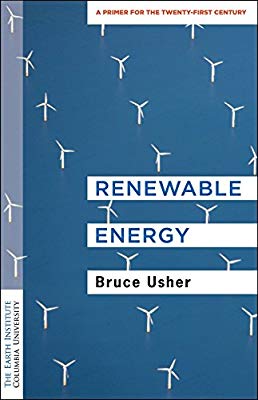Product description
From wood to coal to oil and gas, the sources of energy on which civilization depends have always changed as technology advances. Now renewables are overtaking fossil fuels, with wind and solar energy becoming cheaper and more competitive every year. Growth in renewable energy will further accelerate as electric vehicles become less expensive than traditional automobiles. Understanding the implications of the energy transition will prepare us for the many changes ahead.
This book is a primer for readers of all levels on the coming energy transition and its global consequences. Bruce Usher provides a concise yet comprehensive explanation for the extraordinary growth in wind and solar energy; the trajectory of the transition from fossil fuels to renewables; and the implications for industries, countries, and the climate. Written in a straightforward style with easy-to-understand visual aids, the book illuminates the strengths and weaknesses of renewable energy based on business fundamentals and analysis of the economic forces that have given renewables a tailwind. Usher dissects the winners and losers, illustrating how governments and businesses with a far-sighted approach will reap long-term benefits while others will trail behind. Alongside the business and finance case for renewable energy, he provides a timely illustration of the threat of catastrophic climate change and the perils of delay. A short and powerful guide to our energy present and future, this book makes it clear that, from both economic and environmental perspectives, there is no time to lose.
Review
Balanced, articulate, and informative. (Kirkus Reviews)
A short, handy new guide from the Earth Institute cuts through the noise about renewable energy to lay out the facts about this politically charged subject. (Kevin Krajick State of the Planet | Earth Institute | Columbia University)
[A] superb corrective. (Barbara KiserNature)
Anecdotes and facts packed into the book will surely leave you with the feeling that you have actually learned something new. And it will surely leave you with some new questions to ponder. (Vitaliy SoloviySustainability Times)
A concise yet comprehensive account of the extraordinary growth in wind and solar energy; the trajectory of the transition from fossil fuels to renewables; and the implications for industries, countries, and the climate. (Ian Angus Green Left Weekly)
There’s a lot of talk about renewable energy these days. But few really understand it―the basic science, the limits, and the great promise it holds. Read Bruce Usher’s Renewable Energy: A Primer for the Twenty-First Century to better understand the great technological and economic revolution of this century. (Michael E. Mann, Distinguished Professor of Atmospheric Science, Penn State University, and coauthor of The Madhouse Effect: How Climate Change Denial is Threatening Our Planet, Destroying Our Politics, and Driving Us Crazy)
Policy makers, utilities, investors, and incumbent industries would be well served to read Bruce Usher’s Renewable Energy. Buttressed by history and fact, Usher makes the compelling case that the transition to renewable energy is underway. Government policy can slow or accelerate the transition but transition is inexorable. There will be lots of winners on the transition, but woe to the losers. (Richard L. Kauffman, Chairman of Energy and Finance for New York)
Bruce Usher brings the important and under-explained rise of renewable energy out of his business school classroom to a captivating read for business and policy audiences. Part history, part forecasting, this important book sets out the winners and losers―individuals, businesses, and nations―in the dynamic energy transition underway. (Glenn Hubbard, Dean and Russell L. Carson Professor of Finance and Economics, Columbia Business School, and former chairman of the U.S. Council of Economic Advisers.)
Usher explains in clear and intelligible language the primary technical and economic characteristics of renewable energy. The book documents the rapid rise of renewables within the history of modern energy, providing a thoughtful and balanced point of view that makes this book stand out from more advocacy-focused works. (Charles Donovan, director of the Centre for Climate Science and Investment, Imperial College Business School)
Climate change is arguably the greatest challenge of our times and the move towards renewable energy provides part of the solution. This easily readable book provides a straightforward account of the issues and opportunities of this great transition, framed in the context of historical precedents, economic and environmental drivers, and future horizons. Usher explains the financial factors and focuses on intermittency of wind and solar power as the greatest barrier, but one for which there may be exciting and innovative solutions. (Alex Halliday, Director of the Earth Institute, Columbia University)
About the Author
Bruce Usher is professor of professional practice and the Elizabeth B. Strickler ’86 and Mark T. Gallogly ’86 Faculty Director of the Tamer Center for Social Enterprise at the Columbia Business School, where he teaches on the intersection of financial, social, and environmental issues. He was previously an entrepreneur and worked in financial services in New York and Tokyo.
This description is edited and published by Amazon.
To buy this book please visit its link on amazon . Link.



















